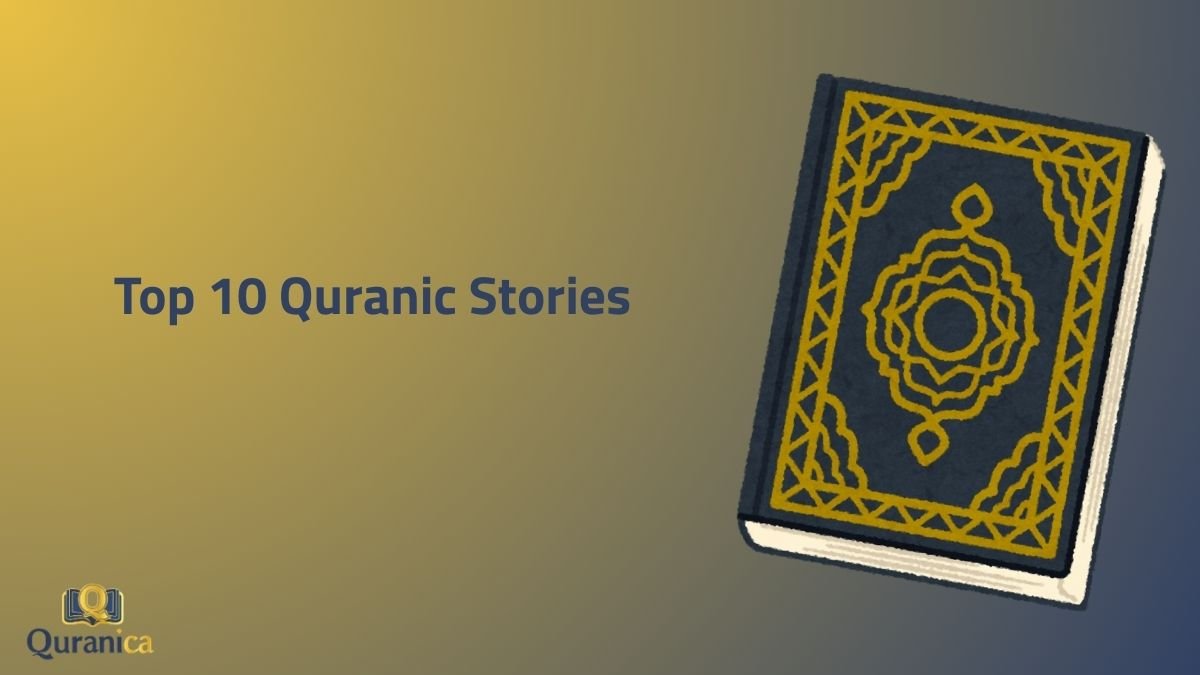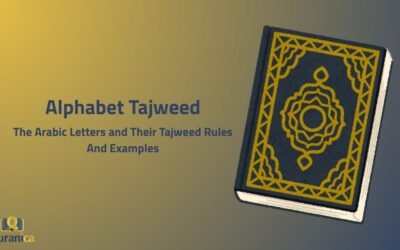Since we were little ones, stories have captivated us. But the stories of the Quran… ah, these are different. These are Haqq (Truth). They are from Allah, the All-Knowing, All-Wise. They teach us about iman (faith), taqwa (God-consciousness), sabr (patience), and shukr (gratitude). They show us the path to Jannah (Paradise) and warn us from the fire of Jahannam (Hell).
When we say “quranic stories for Adults,” we are not talking about a separate book or a different version of these narratives. Rather, it means approaching the well-known stories of the Quran with a mature mind and a heart seeking deeper understanding.
As adults, we have experienced more of life, its challenges, its joys, and its complexities. This allows us to connect with the Quranic narratives on a different level, seeing nuances and drawing lessons that perhaps we missed when we were younger.
When we study these narratives as adults, we look beyond the surface of the events and try to grasp the underlying wisdom, the messages about faith, morality, human nature, and the consequences of our choices.
Allah says in the Quran:
“لَقَدْ كَانَ فِي قَصَصِهِمْ عِبْرَةٌ لِأُولِي الْأَلْبَابِ”
“There was certainly in their stories a lesson for those of understanding.” (Surah Yusuf, 12:111)
So, let us explore these treasures together, and see how they can illuminate our path, insha’Allah.
1. The Quranic Story of Musa (Moses) and Al-Khidr – Understanding Allah’s Wisdom
Musa (عليه السلام) learning from Al-Khidr. Sometimes, we don’t understand why things happen. We question Allah’s wisdom.
Al-Khidr shows us that there’s always a bigger picture, a wisdom beyond our limited understanding.
Like when Al-Khidr made a hole in the boat. Musa was confused. But later, he understood. Allah saved the boat from a king who would have seized it.
“فَوَجَدا عَبْدًا مِّنْ عِبَادِنَا آتَيْنَاهُ رَحْمَةً مِّنْ عِندِنَا وَعَلَّمْنَاهُ مِن لَّدُنَّا عِلْمًا”
“And they found a servant from among Our servants to whom we had given mercy from us and had taught him from Us a [certain] knowledge” (Al-Kahf 18:65)
This reminds us that we need to trust in Allah’s plan, even when we don’t understand it. It’s about surrendering to His knowledge, realizing that He knows what’s best for us.
2. The Quranic Story of Ibrahim and Ismail – Sacrifice and Obedience
Ibrahim (Abraham), peace be upon him, loved his son Ismail very much. But Allah tested him. He saw in a dream that he had to sacrifice Ismail.
Dreams of Prophets are true. This is wahy (revelation).
Ibrahim (peace be upon him) told Ismail. What did Ismail say? He did not cry or run away.
(يَا أَبَتِ افْعَلْ مَا تُؤْمَرُ)
“O my father, do as you are commanded.” (Surah As-Saffat, 37:102)
SubhanAllah! Look at this obedience! Both father and son were ready to do what Allah commanded.
(فَلَمَّا أَسْلَمَا وَتَلَّهُ لِلْجَبِينِ)
“And when they had both submitted and he put him down upon his forehead,” (Surah As-Saffat, 103)
But Allah (SWT) is merciful. He did not want Ismail to die. He sent a ram to be sacrificed instead.
(وَفَدَيْنَاهُ بِذِبْحٍ عَظِيمٍ)
“And We ransomed him with a great sacrifice.” (Surah As-Saffat, 107)
This story teaches us about taqwa (God-consciousness) and obedience to Allah.
Sometimes, Allah asks us to give up things we love. It might be our time, our money, our comfort.
But if we do it for Allah, He will reward us in ways we cannot imagine. It is a very difficult test, but the reward is great.
3. The Quranic Story of Yunus (Jonah) – Repentance and Allah’s Mercy
Yunus (peace be upon him) is a prophet who became impatient with his people. He left them, and then, he found himself swallowed by a whale. In the darkness, in the depths of the sea, he turned to Allah. He made du’a, a sincere du’a.
“لا إِلهَ إِلَّا أَنْتَ سُبْحانَكَ إِنِّي كُنْتُ مِنَ الظَّالِمِينَ”
“There is no deity except You; exalted are You. Indeed, I have been of the wrongdoers.” (Al-Anbiya 21:87)
Those words, so powerful. Acknowledging his mistake, seeking forgiveness. And Allah, He responded. He saved Yunus (عليه السلام).
This story, it’s a reminder for us. We all make mistakes. We all stray from the path.
But Allah’s mercy is vast.
It’s always there, waiting for us to return. It’s about sincere repentance, about turning back to Allah with a broken heart. It teaches us that no matter how deep we fall, Allah’s forgiveness is deeper.
4. The Quranic Story of the People of the Cave (Ashab al-Kahf) – Steadfastness in Faith
These young men, they lived in a time of oppression. They refused to compromise their faith. They fled, seeking refuge in a cave. And Allah, He protected them, putting them to sleep for centuries.
This story teaches us about steadfastness, about holding onto our iman, even when it’s difficult. It’s about prioritizing our relationship with Allah above everything else.
“إِذْ أَوَى الْفِتْيَةُ إِلَى الْكَهْفِ فَقالُوا رَبَّنا آتِنا مِنْ لَدُنْكَ رَحْمَةً وَهَيِّئْ لَنا مِنْ أَمْرِنا رَشَدًا”
“When the young men took refuge in the cave and said, ‘Our Lord, grant us from Yourself mercy and prepare for us from our affair right guidance.'” (Al-Kahf 18:10)
See, they didn’t ask for wealth or power. They asked for mercy and guidance. And Allah gave them both.
For us, in our modern world, with all its distractions and temptations, this story is a beacon, reminding us to stay firm in our faith.
5. The Quranic Story of the Garden Owners (Ashab al-Jannah)
A story of a family with a lush garden, blessed by Allah. They were instructed to give a portion of their harvest to the poor. But after their father’s death, they became greedy, plotting to keep everything for themselves.
“فَطَافَ عَلَيْها طائِفٌ مِنْ رَبِّكَ وَهُمْ نائِمُونَ”
“Then there came upon the garden an affliction from your Lord while they were asleep.” (Al-Qalam 68:19)
Allah destroyed their garden, a lesson about the consequences of greed and the importance of generosity.
It teaches us that true wealth lies in giving, in sharing the blessings that Allah has bestowed upon us.
As adults, we often struggle with balancing our desires with our responsibilities. This story reminds us to prioritize generosity and to avoid the pitfalls of greed.
6. The Quranic Story of Qarun – Arrogance and Materialism
Qarun, a man blessed with immense wealth. But he became arrogant, attributing his success to his own abilities, forgetting Allah’s blessings.
“قالَ إِنَّما أُوتِيتُهُ عَلى عِلْمٍ عِنْدِي”
“He said, ‘I was only given it because of knowledge I have'” (Al-Qasas 28:78)
And what was the result? Allah caused the earth to swallow him and his wealth.
This story is a warning against arrogance, against materialism. It teaches us that true wealth is not in possessions, but in gratitude and humility.
We need to remember that everything we have is from Allah, and we should use it to please Him.
7. The Quranic Story of the Cow (Baqarah)
This story, found in Surah Al-Baqarah, is about the Children of Israel who were commanded by Musa to slaughter a cow.
But instead of obeying immediately, they began asking numerous questions, making the task increasingly difficult for themselves.
This story teaches us the importance of obedience and avoiding excessive questioning when Allah’s commands are clear.
It highlights the dangers of stubbornness and the need to trust in Allah’s wisdom.
For adults, this lesson is crucial in navigating life’s challenges, reminding us to humbly accept divine guidance.
8. The Quranic Story of the People of the Ditch (Ashab al-Ukhdud)
This story in Surah Al-Buruj speaks of a group of believers who were persecuted for their faith. They were thrown into a ditch filled with fire, yet they remained steadfast in their belief in Allah.
It’s a story of unwavering faith in the face of extreme adversity, reminding us that true faith is tested in times of hardship.
As adults, we may encounter situations where our faith is challenged. This story provides strength and inspiration to remain steadfast.
9. The Quranic Story About Three Who Stayed Behind
In the time of the Prophet (peace be upon him), there was a battle called Tabuk. It was far away, and it was hot. Some Muslims made excuses not to go.
But three companions, Ka’b ibn Malik, Murara ibn Rabi’, and Hilal ibn Umayya, they did not have a good excuse. They just stayed behind.
When the Prophet (peace be upon him) came back, they told the truth. They did not lie. The Prophet (peace be upon him) told everyone not to talk to them. It was a punishment. They were very sad, but they were patient.
After 50 nights, Allah (SWT) accepted their repentance. He revealed verses in the Quran Surah At-Tawbah, 118-119.
This is a story about honesty. Even if the truth is difficult, it is always better. Allah loves those who are truthful. And He accepts repentance, even for big mistakes.
Read more about: Quranic Teachings: What Are The Main Teachings Of The Quran?
10. The Story of Uzair
Uzair, peace be upon him, questioned how Allah could bring life back to a destroyed city.
Allah caused him to die for a hundred years, then resurrected him, showing him His power over time.
“فَأَماتَهُ اللَّهُ مِائَةَ عامٍ ثُمَّ بَعَثَهُ قالَ كَمْ لَبِثْتَ قالَ لَبِثْتُ يَوْمًا أَوْ بَعْضَ يَوْمٍ قالَ بَلْ لَبِثْتَ مِائَةَ عامٍ فَانْظُرْ إِلى طَعامِكَ وَشَرابِكَ لَمْ يَتَسَنَّهْ وَانْظُرْ إِلى حِمارِكَ وَلِنَجْعَلَكَ آيَةً لِلنَّاسِ وَانْظُرْ إِلَى الْعِظامِ كَيْفَ نُنْشِزُها ثُمَّ نَكْسُوها لَحْمًا فَلَمَّا تَبَيَّنَ لَهُ قالَ أَعْلَمُ أَنَّ اللَّهَ عَلى كُلِّ شَيْءٍ قَدِيرٌ”
“So Allah caused him to die for a hundred years; then He resurrected him. He said, ‘How long have you remained?’ He said, ‘I have remained a day or part of a day.’ He said, ‘Rather, you have remained a hundred years. And look at your food and your drink – it has not changed; and look at your donkey. And [we did this] that We might make you a sign for the people. And look at the bones [of the donkey] how We raise them and then We cover them with flesh.’ And when it became clear to him, he said, ‘I know that Allah is over all things competent.'” (Al-Baqarah 2:259)
This story emphasizes Allah’s absolute power and control over time and creation. It reinforces the concept of resurrection and the importance of believing in Allah’s ability to do all things.
These stories are not just narratives; they are lessons, reminders, and guides for our lives. To truly grasp their depth, to connect with them on a personal level, we need to understand the language of the Quran. Let Quranica help you on this journey.
Read more about: The Quranic Arabic – Full Guide
Learning More: Join Us at Quranica!
My dear brothers and sisters, these are just a few of the many beautiful and powerful Quranic stories for Adults in the Quran. Each story is a treasure, a lesson, a guidance for us.
If you want to learn more, if you want to dive deeper into the Quran, to understand its meaning, its language, its beauty… I invite you to join us at Quranica. We offer many courses for all levels, from beginners to advanced.
We teach you how to read the Quran with TAJWEED, how to understand it, and we help you if you want to MEMORIZE Quran.
We have experienced teachers, huffaz (memorizers of the Quran), who are passionate about sharing their knowledge with you.
We help you to understand the stories of Quran by understanding the Arabic words, you can enroll now in our Quranic Arabic Course.
Join Us Today!
Conclusion:
The Quranic stories are not merely tales but divine lessons filled with wisdom, faith, and moral guidance. As adults, revisiting these narratives allows us to uncover deeper meanings and profound life lessons that may have eluded us in childhood. Through the trials of Prophet Musa with Al-Khidr, we learn about trust in Allah’s wisdom, while the story of Ibrahim and Ismail highlights sacrifice and submission.
The repentance of Yunus in the belly of the whale reminds us of Allah’s boundless mercy, just as the steadfast faith of the People of the Cave teaches resilience. Similarly, the downfall of Qarun warns against arrogance, and the story of the greedy garden owners serves as a reminder of the consequences of selfishness.
Each of these Quranic stories presents valuable insights into human nature, faith, and divine justice. Whether it is the unwavering belief of the People of the Ditch, the lesson of obedience from the Story of the Cow, or the patience of those who repented during the Battle of Tabuk, these narratives shape our understanding of life and our relationship with Allah. They reinforce key Islamic principles such as honesty, gratitude, and perseverance. By delving into their meanings, we not only strengthen our faith but also apply their teachings in our daily lives.








0 Comments